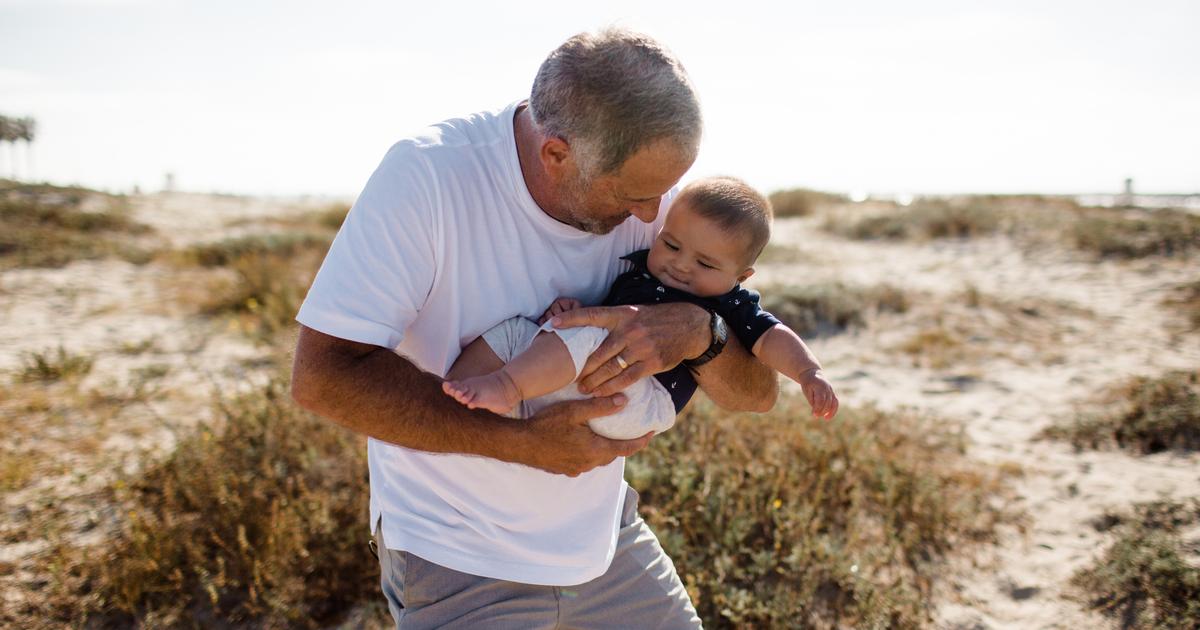A new role for actor Al Pacino. At 83, Hollywood's most famous godfather is about to become a father for the fourth time. This news, quite unexpected – including for the concerned who would have asked for a DNA test to the future mother – comes only a few weeks after the birth announcement of the seventh child of his former partner on set, Robert de Niro, 79 years old. If there is no definition of late paternity, or even very late as here, there is no shortage of examples in the world of show business. Charlie Chaplin, Mick Jagger or Jean-Paul Belmondo have plunged back into the layette, the sixty well exceeded. In France, according to INSEE, of the 742,052 children born and recognized in 2021, a third are welcomed by a father over 40 years old, including 1,512 dads over 60 years old. A very rare phenomenon, therefore, but possible since in theory, a man can procreate all his life. Only becoming a father at an age when one is considered by society as close to retirement raises questions. Who are these men who dare to take this step so late? How do they live it? What relationship do they want to establish with their baby? Are they afraid of being a burden on their child as they get older, of not seeing him grow up?
To discover
- Leonardo DiCaprio > Podcast: Forbidden to over 25s
To answer this, we contacted Anna Machin, a researcher in evolutionary anthropology at the Department of Experimental Psychology at the University of Oxford. For more than fifteen years, she has been investigating how contemporary fathers experience their entry into parenthood. She even drew a book, Devenir papa, published by Larousse in 2019. For Madame Figaro, she explains why some men over 60 take on this new identity, relieved - among other things - of the pressure of the biological clock.
In video, 9 key facts about paternity leave in France
Mrs. Figaro.fr.- Why does being a father at an age when others are experiencing grandparenthood surprise or even disturb?
Anna Machin.- It upsets and challenges our societal representations of what a father should look like. We have become accustomed to this image of Épinal entering fatherhood for the first time in our late thirties or early forties. Becoming a father at over 60 remains a rare, unusual phenomenon that is usually observed in rich, famous and/or powerful people. De Niro, Pacino, but also Picasso, Charlie Chaplin, Mick Jagger... What all these men have in common is that they have succeeded and are still able to attract fertile women at an advanced age.
" READ ALSO The new fathers: these men who do not want to earn more money, but more time with their children
Such an age gap between father and child can slow down societal disapproval. What drives the men concerned to overcome these obstacles?
We can speak of a combination of circumstances. In the history of human evolution, the ability to reproduce has always been extremely valued and associated with performance. Clearly, the more children you had, the better you were perceived. This may explain why some men give in to this instinctive biological need to reproduce and renew, when they can, reproductive success. Especially since these men are helped to achieve this biologically. They do not experience the same decline in fertility experienced by women during menopause, nor are they concerned by the increased risks associated with late delivery. And if they are in a relationship with a younger woman, as is often the case, the desire to start a family may appear all the stronger, motivated by the partner. Some men I interviewed during my investigation also told me that they waited to meet the right person to take action.
Becoming a father at over 60 remains a rare phenomenon, which is usually observed in rich, famous and/or powerful people.
Anna Machin, researcher in evolutionary anthropology
Behind this desire for fatherhood among the over 60s, would there not be a desire to restart the clock at zero? To rejuvenate themselves by taking on the role of "young" father, or even to protect themselves from their close mortality?
There is no evidence to support this hypothesis, but it can be considered in men who believe that their virility feeds their identity or strengthens their ego. But this reflection does not seem to be in the minority.
Freed from the biological clock, can we imagine that it is also easier for them to project themselves into a late paternity?
Absolutely. In their eyes, fatherhood is not a physical constraint and represents little risk, except that of not seeing their child grow up. Contrary to popular belief, many feel that this parenthood comes at a high point in their lives since they are financially and professionally stable, or even at the peak of their careers. With the pressure of success behind them, this leaves them plenty of time to devote more time to their offspring.
How do they apprehend their relationship with the child, their age gap, the possibility of being a burden on their child in the event of an illness related to old age?
This question of their own mortality is at the center of their concerns. Of course, most of them dread that fateful moment. Some fear that they won't stay long enough to see the child grow up. Others make sure to maintain a healthy lifestyle as much as possible and maintain their physical fitness more to give themselves the chance to be there as long as possible.
In their eyes, fatherhood is not a physical constraint and represents little risk, except that of not seeing their child grow up.
Anna Machin, researcher in evolutionary anthropology
When the child arrives, how do they experience this late parenting?
The majority of them are doing very well. This is due to their previous experiences. Many have already had children and see this new baby as yet another chance to do things well and better.









